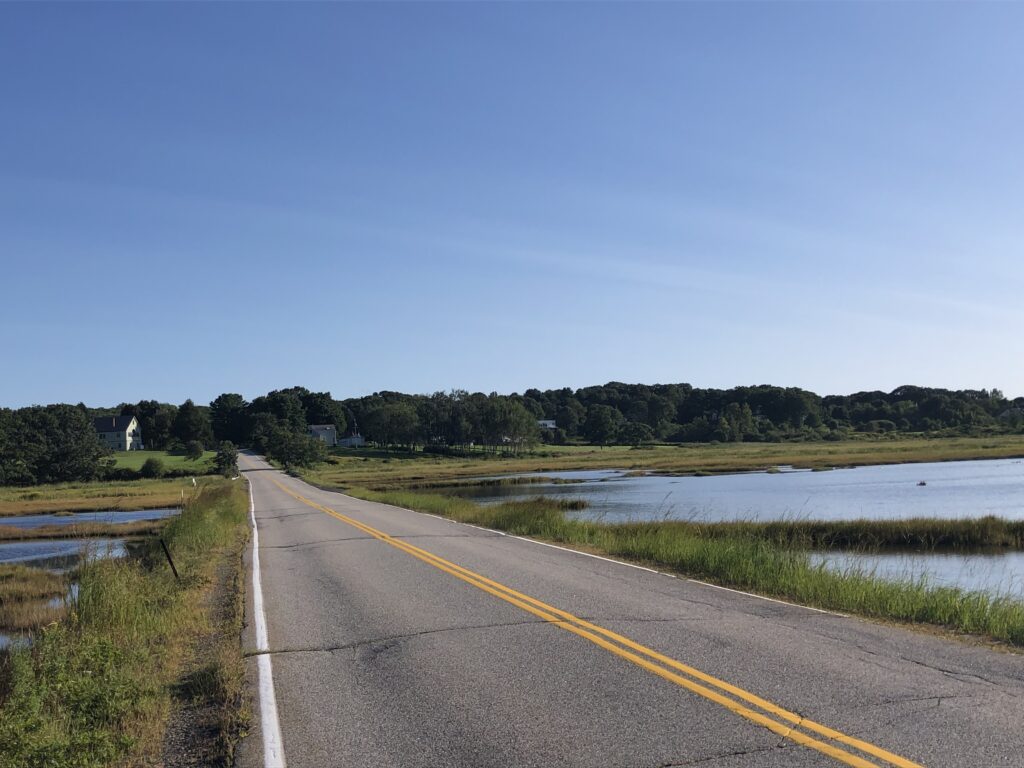
If you’ve ever attended a Stream Smart training, you know that it is a partner-driven outreach and educational program, coordinated by Maine Audubon, that works with contractors, landowners, and other professionals to construct road-stream crossings that maintain fish and wildlife habitat while protecting roads and public safety. You may not have realized that it’s only intended for freshwater systems so as such, it doesn’t address the specific issues associated with tidal systems.
Those specific issues are significant. The greatest difference is that tidal road crossings must allow for water both to come in and to flow out. Water coming in with the tides is essential for the unique and critically important habitats upstream—like salt marshes and tidal flats. But inundating marshes that have been restricted for years without careful consideration can cause more harm to the system and impact human infrastructure. Many fish, bird, and shellfish species depend on salt marsh and other habitats for their survival, and tidal restrictions can impair their health and functionality. Tidal restrictions also result in higher road maintenance costs and put public safety at risk. Not surprisingly, our salt marshes are increasingly vulnerable as sea levels rise and the volume of stormwater increases over the coming decades.
With more than 800 tidal crossings along the coast of Maine, 90% of which are undersized, it’s important to understand the ecological impacts of these restrictions and work to restore the natural function of the system. That’s where CoastWise comes in! CoastWise is a new collaboration, of more than thirty organizations, created to encourage the design of safe, cost-effective, ecologically supportive, and climate-resilient road crossings along the Maine coast. Maine Audubon is a partner in this effort and we’ll be working with government agencies, nonprofit organizations, municipalities, colleges and universities, and others to help design outreach and training programs to spread the word about this new initiative and to create a workforce skilled in addressing this particular challenge.
The collaborative has just released a new hundred-page manual, “The CoastWise Approach: Achieving Ecological Resilience and Climate-Ready Road Crossings in Tidal Environments,” that offers detailed technical guidance on how to increase the safety of road crossings over Maine’s coastal wetlands and waterways. The CoastWise manual contains nine chapters and three appendices with dozens of photographs and diagrams and is designed for municipal staff, engineers, private road owners, and other people interested in helping to replace old, undersized road culverts and bridges in coastal towns with safe, climate-resilient tidal crossings.
The manual can be downloaded for free here. Using this manual, the Tidal Restriction Atlas, and additional materials still in development, the collaborative will be creating training workshops and working with coastal communities to help address tidal restrictions up and down the Maine Coast. Maine Audubon will post upcoming workshops once they are scheduled, so stay tuned!
